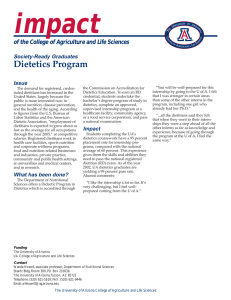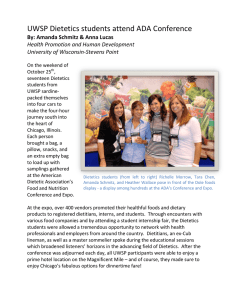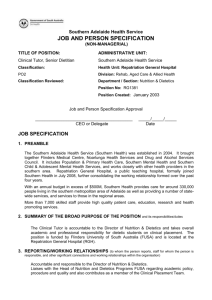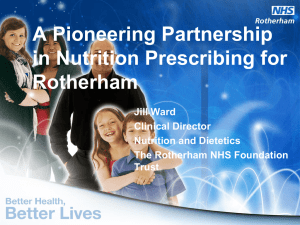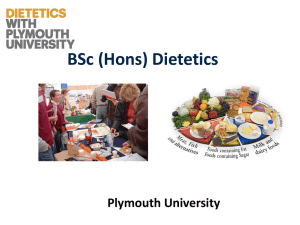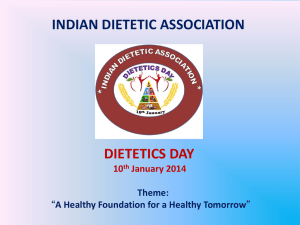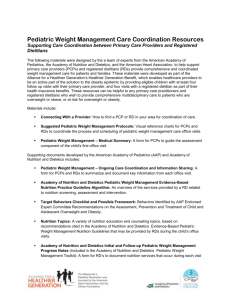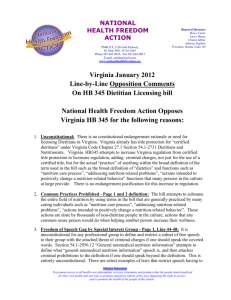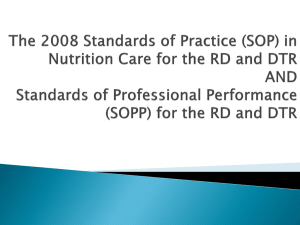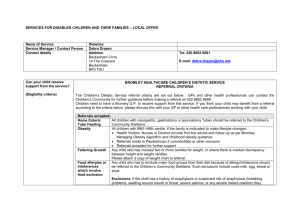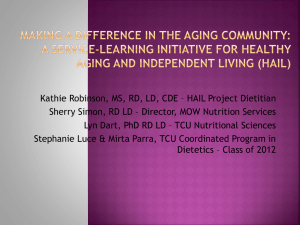Dietetics presentation
advertisement
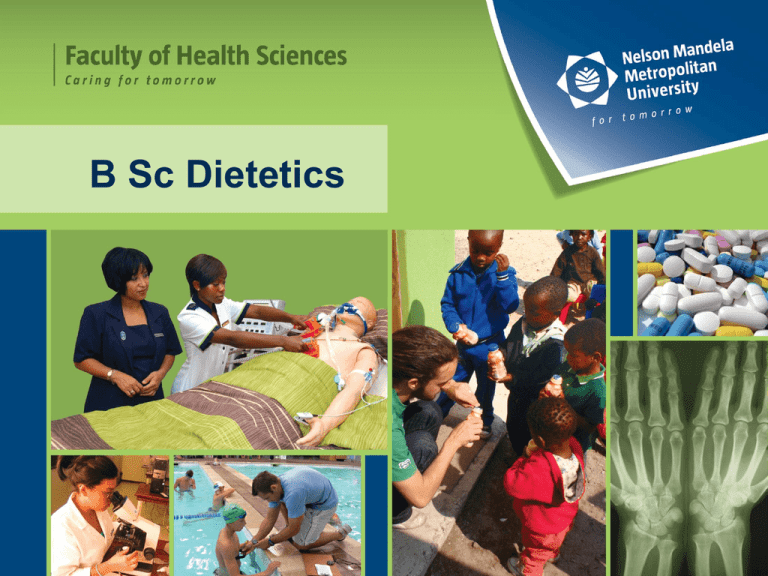
B Sc Dietetics What is Dietetics? A key factor to modern medicine One of world’s fastest-growing professions. A career that can make a difference – provide knowledge and advice Profession that assists the public to understand the real facts and prevent misinformation What can one do with Dietetics? NMMU trains competent, ethical dietetics professionals in: Clinical/ therapeutic dietetics Community dietetics Consultants (private practitioners) Dietitians managing food services Research and application - preventive and curative medicine. Importance of Dietetics South Africans have Growing health problems Sedentary, stressful lifestyles Unhealthy food choices Dietitians strive towards eliminating diseases caused by unhealthy lifestyles. Results of the efforts of dietitians cannot always be seen immediately, in the long run it saves lives and can increase an individual’s life span. Statistics Ageing population, 25.5% > 60 years. Special nutritional care. Mortality rate of < 5 years - 10%. Good nutritional support and knowledge. Cardiovascular disease & diabetes cause 7% of deaths. Statistics: in 2010 Only 763 dietitians employed in public sectors, not even one for each hospital. Only 0.16 dietitians for every 10 000 people. 26.3% of registered dietitians working abroad, as South African dietitians are sought after. Therefore many job opportunities available B Sc Dietetics programme at NMMU Dietitians work with people, more emphasis on Psychology. Dietetics part of Human Movement Science, sport nutrition an important focus point. Programme offers good foundation for research. Small classes, individual attention. Port Elizabeth has an excellent clinical dietetic structure - practical, hands-on experience while still studying. Professional Registration HPCSA: Dietitians, register with the Health Professions Council of South Africa. ADSA: Association for Dietetics in South Africa. ADSA represents and develops the dietetic profession NSSA: Nutrition Society of South Africa. NSSA strives to advance scientific study of nutrition Curriculum Year 1 Chemistry Physics Nutrition Psychology Computer Food Science Skills Food Service Year 2 Biochemistry Nutrition Physiology Microbiology Food Service Year 3 Pharma= cology Nutrition (Therapy) Nutrition (Community) Research Methodo= logy Statistics Entrepre= neurship Food Service Year 4 Work Integrated Learning: Ethics and Treatise Nutrition and Food Service (Research) Law
